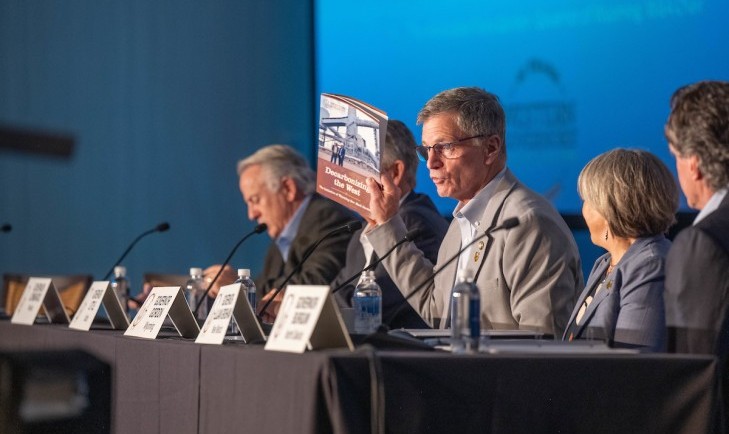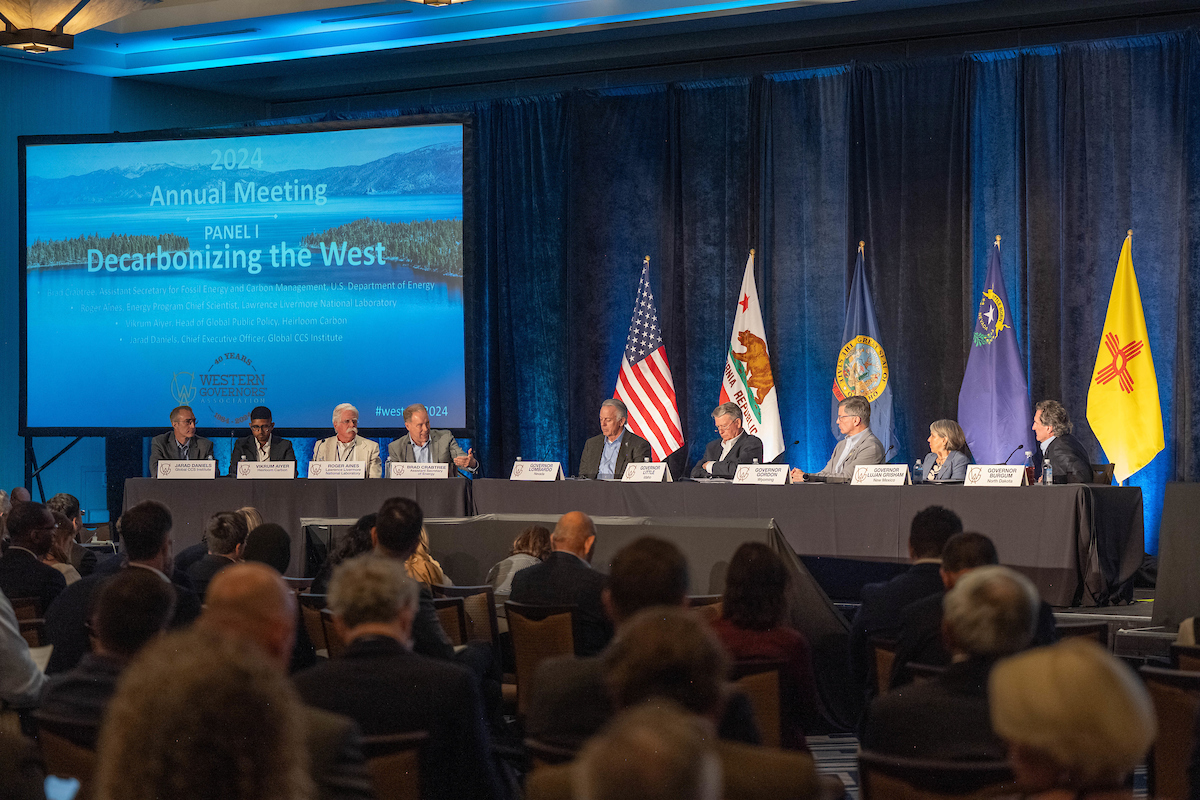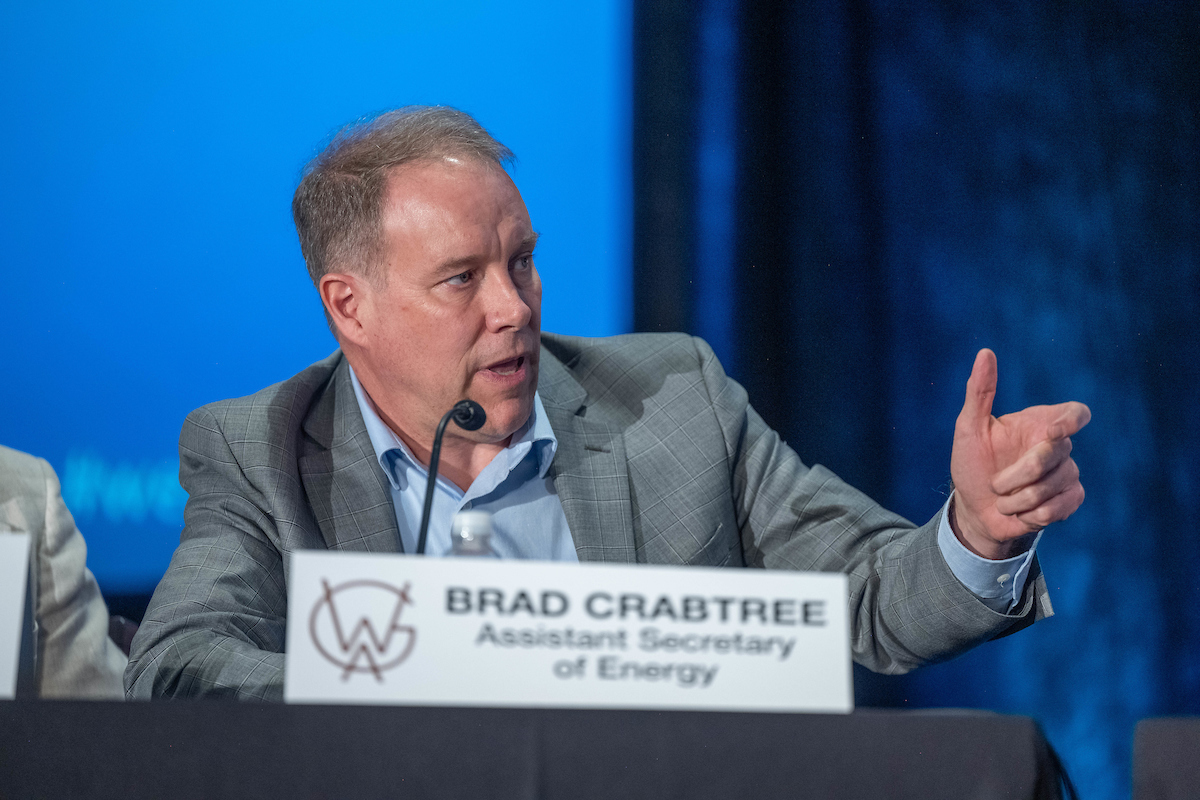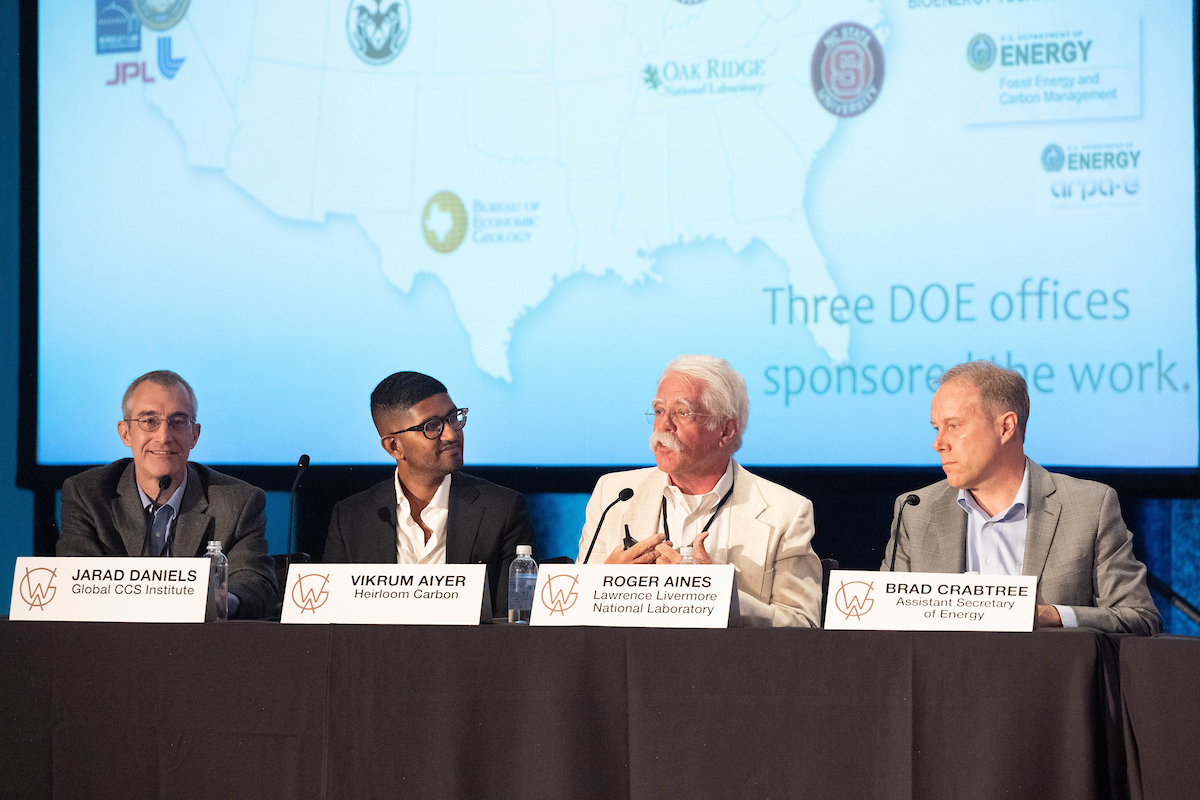
For the past year, Wyoming Governor Mark Gordon led an initiative as Chair of the Western Governors’ Association (WGA) to examine the potential of various decarbonization strategies.
 Following an extensive stakeholder engagement process that convened carbon capture and removal experts from around the world, Governor Gordon and WGA are proud to release the Decarbonizing the West initiative report.
Following an extensive stakeholder engagement process that convened carbon capture and removal experts from around the world, Governor Gordon and WGA are proud to release the Decarbonizing the West initiative report.
Listen to Governor Gordon speak about his newly-released report and view highlights from his initative in a video below.
Along with bipartisan policy recommendations for advancing carbon capture, utilization, and storage (CCUS) technologies, the report also outlines strategies for maximizing the region’s capacity for natural carbon sequestration through enhanced land and agricultural management practices.
Of the many recommendations in this report, some of the more notable proposals focus on the need to increase federal incentives and reduce regulatory burdens for the full suite of carbon dioxide removal options.
“I am very happy to say today America has demonstrated yet again that innovation will trump regulation and that we can move forward in a future which is beneficial to all of us,” Governor Gordon said. “If we can continue to work together, there is so much that we can accomplish.”
Private industry partners also recognized the wide range of opportunities and innovative solutions put forth in the initiative report.
"JPMorgan Chase commends Governor Mark Gordon and the Western Governors Association for leadership on this critical initiative, which puts western states at the forefront of energy innovation,” Brian DiMarino, Deputy Director of Global Sustainability at JPMorgan Chase, added. “Alongside emissions reductions, technologies like carbon capture and removal present an enormous opportunity for U.S. economic growth, energy security and affordability, and decarbonization. JPMorgan Chase is proud to partner with the Western Governors on efforts to drive scale and innovation and we commend Governor Mark Gordon for convening leading voices to help spur investment, remove barriers and speed deployment of solutions.”
 Brad Crabtree, the Assistant Secretary for Fossil Energy and Carbon Management at the U.S. Department of Energy, highlighted the rapid development of carbon management technologies in the United States, as outlined in the report.
Brad Crabtree, the Assistant Secretary for Fossil Energy and Carbon Management at the U.S. Department of Energy, highlighted the rapid development of carbon management technologies in the United States, as outlined in the report.
“It's not an exaggeration to say that the United States now has the most robust framework for carbon management and decarbonization in the world today,” Crabtree said. “I've had the privilege, representing the Department of Energy, to visit well over a dozen countries, and it's quite extraordinary how this policy framework is garnering the attention of the entire world as a way to drive investment in projects and infrastructure.”
 Panelists also noted the wave of collaborative energy and attention that has overtaken the carbon capture industry in recent years.
Panelists also noted the wave of collaborative energy and attention that has overtaken the carbon capture industry in recent years.
“This has quickly moved out of just the exclusive domain of certain political ideologies or certain subscriptions to the climate math,” said Vikrum Aiyer, the Head of Global Public Policy at Heirloom Carbon. “And it's become an all hands on deck moment for the United States, and particularly the western states.”